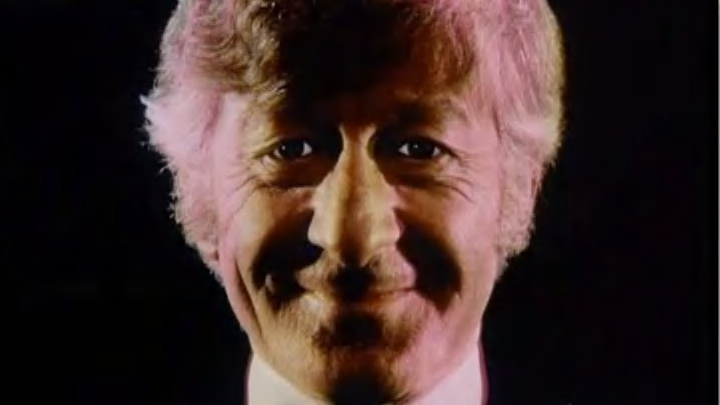Season 7 was a major turning point for Doctor Who. First of all, it introduced a brand new Doctor, Jon Pertwee. With his distinctive fashion sense and his love of cars and gadgets, Pertwee’s Doctor was extremely different from previous Doctors William Hartnell and Patrick Troughton. He’d also become just as successful, at least.
The second major change for the series was that the style became much more Earthbound. After several years of traveling through time and space, the Doctor was now stuck on present-day Earth. This meant a lot of focus on alien invasions, conspiracies, and other threats to the planet. Fortunately, the Doctor had help from Brigadier Lethbridge-Stewart and his organization UNIT - both of which had been established in the previous era.
Finally, perhaps the most significant change of all was the move from black-and-white to color. While many British households still only had black-and-white televisions, the series itself moving to color showed that it was moving forward in big ways.
One of the best seasons?
These are the reasons why Season 7 is important to Doctor Who's long history. But is it any good? Absolutely. While it comprises only four serials – one four-part story, the others seven-parters – each of them is a classic. You only need to watch opening story "Spearhead from Space" above to see just how good it is. (Seriously, if you've never seen it before, find some time and watch it right now. Especially as it's free.)
In some ways, Season 7 feels like Doctor Who trying to find its sense of identity all over again. It's radically different from what came before or after. It has a very unique style, one that's darker and grittier, especially compared to later Pertwee seasons. It's also filled with paranoia and rich political storytelling. It’s a style that’s only used for this season. And as great as Season 7 is, that might have been for the best.
There's a strange paradox with Season 7 in that it is one of the show's stronger seasons, perhaps one of the very strongest. But it has such a unique style that almost goes against the reasons why most of us fell in love with this show in the first place. There are no adventures in time and space, and the tone isn't quite as fun as it is in many other seasons.
Different approach
It's not surprising then that for the following year, a lighter approach was taken. While the Doctor was still mostly Earthbound, Season 8 had less paranoia and moral ambiguity and more fun, instead. The series went back to telling more traditional stories of good versus evil. What helped in particular was the creation of a brand new villain: a charming, intelligent but ruthless Time Lord known only as the Master.
This lighter approach might not have given us a season quite as strong as Season 7. And yet at the same time, I'm glad it was taken because the rest of Pertwee's era is still brilliant. It's a lot of fun to watch, especially whenever Roger Delgado's Master showed up. In some ways, the majority of Pertwee's era feels more influential on Doctor Who as a whole compared to Season 7.
But at the same time, Season 7 - as radically different as it is - is still essential to watch. It might not be what we think of as "typical" Doctor Who, but there's no question that the stories it told were some of the show's strongest.
